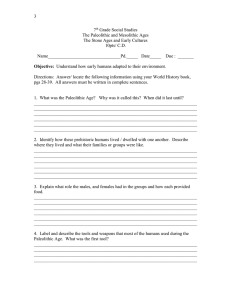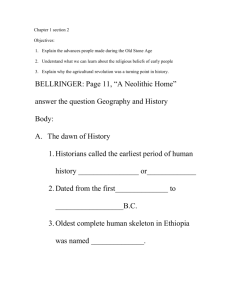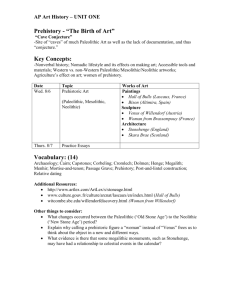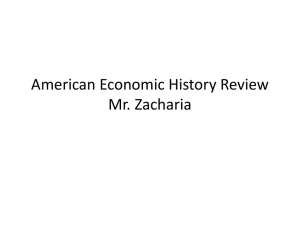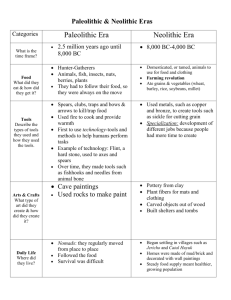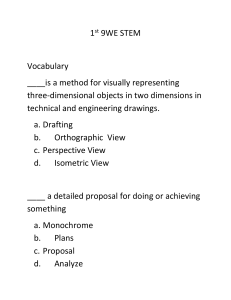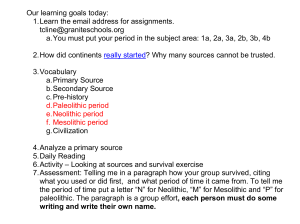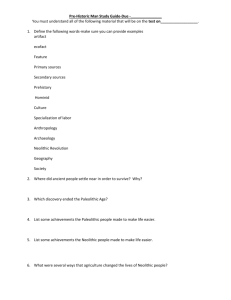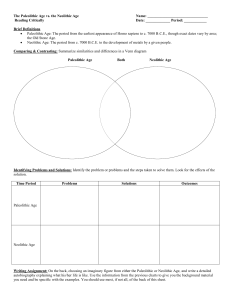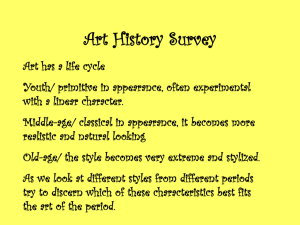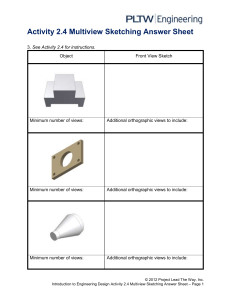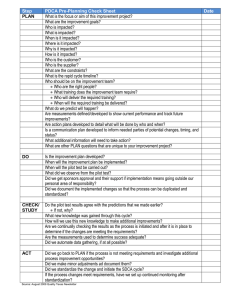FOT Midterm review
advertisement
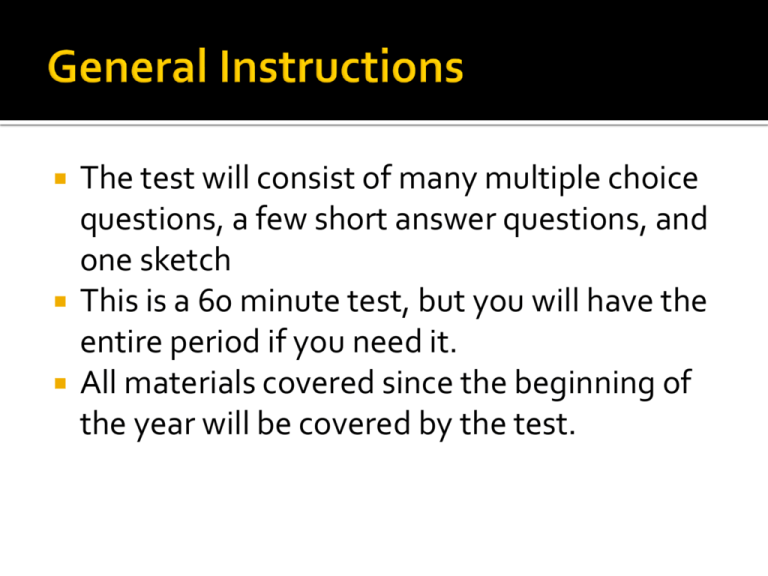
The test will consist of many multiple choice questions, a few short answer questions, and one sketch This is a 60 minute test, but you will have the entire period if you need it. All materials covered since the beginning of the year will be covered by the test. focused. Encourage wild ideas. Defer judgment. Build on the ideas of others. One conversation at a time. Stay focused. What is Brainstorming? What is does “feasibility” mean? Paleolithic Era – Stone axes and needles Mesolithic Era-composite tools and products Neolithic Era-agriculture, plows, pottery Bronze Age Iron Age Middle Ages-windmills, ocean going vessels, money, urbanization Renaissance – science, scientific instruments, arts, humanities Industrial Age – mass production, Information Age Technology has always impacted how we live Technology has impacted how we work – e.g. few agricultural workers today, growing number of information workers The Core Technologies are the building blocks of all technology systems and the designed world. The core technologies are mechanical, structural, electrical, electronic, fluid, thermal, optical, materials, and biotech. Know definitions and examples of each Isometric views – equal angle Oblique views – full front view, top and side appear to go back into the page and to the right Multiview Orthographic projection – glass box Construction boxes 4 types of drawing lines: Hidden, construction, object, and center lines Sketches are a means of communication between designers and builders Tonal Shading Metals and Alloys Ceramics Organics Plastics Composites The 12 steps of the Design Process: Define the Problem Brainstorm Research and Generate Ideas Identify Criteria and Constraints – define these Explore DifferentPossibilities Select an approach Develop a design proposal Make a model or prototype Test and evaluate the design using specifications Refine the Design Create or Make it Communicate the processes and results What is the purpose of the Design Process? Vocabulary words: Problem solving Design Process Constraints Risk Analysis Prototype Resources General Rules Drill Press Band Saw What is Technology? The application of knowledge, tools and skills to solve problems and extend human capabilities. What is the difference between engineering and technology System: a group of resources (people, information, tools, energy, capital, time, and materials) working together for a purpose.
